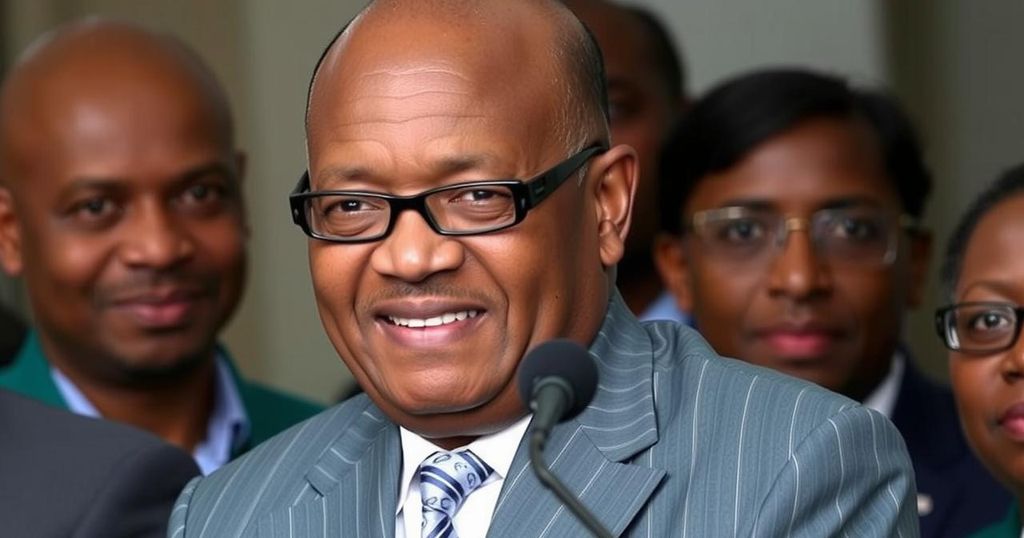Mozambique’s Constitutional Council Confirms Frelimo’s Election Victory Amid Protests
Mozambique’s Constitutional Council affirmed Frelimo’s electoral victory, confirming candidate Daniel Chapo received 65% of the vote amid allegations of fraud. The decision has led to protests, with opposition leader Venancio Mondlane warning of unrest. Observers criticized the election as neither fair nor free, marking a tumultuous period in Mozambique’s governance.
On December 23, 2024, Mozambique’s Constitutional Council officially confirmed the results of the disputed presidential election, affirming the ruling Frelimo party’s continued dominance for a remarkable 50 years. The council’s seven-member panel determined that Frelimo candidate Daniel Chapo obtained 65% of the votes, a decrease from the initial figure of nearly 71%. The Frelimo party has been in power since the country’s independence in 1975.
The election has been marred by allegations of electoral fraud, which opposition factions asserted since the election took place in October. These claims have led to significant protests throughout Mozambique, resulting in at least 130 fatalities due to clashes with law enforcement, reported by the civil society watchdog group Plataforma Decide. Additionally, Western observers criticized the election process, labeling it as neither free nor fair, while Frelimo has categorically denied any allegations of vote manipulation.
Opposition leader Venancio Mondlane has voiced strong objections to the election outcome, asserting that it was unjustly taken from him. He further warned of impending unrest: “Difficult days will come,” suggesting a call for widespread protests should the council validate Chapo’s victory.
This confirmation by the Constitutional Council follows a presidential election that has been characterized by widespread discontent and accusations of manipulation. Frelimo’s extended rule has faced increasing scrutiny from both opposition leaders and international observers, who argue that the electoral environment has become increasingly oppressive and is stifling democratic practices. The historical context of Frelimo’s governance since Mozambique’s independence from Portugal in 1975 adds another layer of complexity to the political dynamics in the country, making the opposition’s claims of systemic electoral unfairness particularly charged.
In conclusion, the Constitutional Council’s endorsement of Daniel Chapo’s electoral victory amidst accusations of fraud and the resulting civil unrest highlights the escalating tensions in Mozambique’s political landscape. With a significant portion of the population expressing dissatisfaction and the prospect of increased opposition activity, the situation remains volatile. The future of democracy in Mozambique, as well as the legitimacy of Frelimo’s prolonged rule, will continue to be under scrutiny.
Original Source: www.dw.com




Post Comment